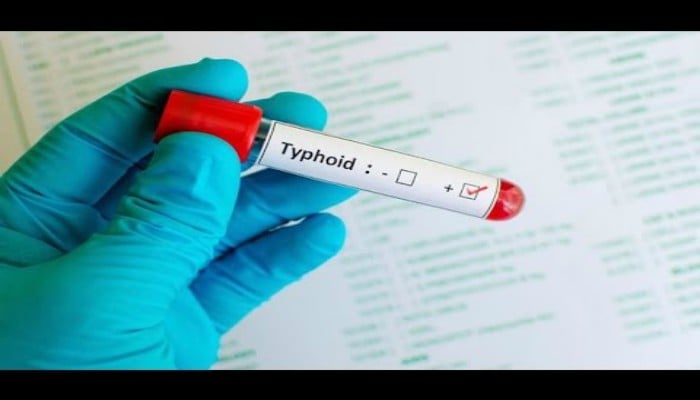Multi-drug resistance typhoid: Experts warn about 'world’s biggest outbreak'
Karachi and Hyderabad are seeing the biggest outbreak of MDR
July 14, 2017

KARACHI: More than 250 children have been affected by Multi-drug resistant typhoid (MDR) typhoid in Hyderabad, said Dr Farah Qamar, the Assistant Professor of Pediatric at the Aga Khan University Hospital.
Qamar, who conducted a survey in different areas of Hyderabad and Karachi, warns that it is “typhoid at its worst”, adding that the two cities are seeing the biggest outbreak of MDR.
In Karachi, 15 children have been affected by the outbreak, Dr Qamar added.
The worst affected areas of Karachi, where an antibiotic-resistant strain of typhoid is circulating, were found to be Lyari, North Karachi, Gulshan-e-Hadeed, Gulistan-e-Jauhar, Malir and Ibrahim Haydri.
Areas in Hyderabad affected by the outbreak include Bhittai Colony, Qasimabad, Wehdat colony, where the affectees include children under the age of two to five years.
According to Dr Qamar, the primary reason for the outbreak is un-chlorinated water, contaminated water and poor sanitation and sewerage conditions, which have contributed to an increase in MDR germs in the environment.
Another issue highlighted during her survey was condition of all four water treatment plants in Hyderabad district, which are non-functional and are supplying contaminated water to the residents.
As the cases are hard to treat, Dr Qamar stresses on the importance of managing the cases to prevent outbreaks.
The situation has worsened since November 2016, but no concrete actions have been taken by the authorities.
Dr Mohammad Taufeeq, Director Health of Karachi, confirmed the presence of MDR typhoid and said that vaccinations with the help of Child Survival Program have been started in Lyari, Ibrahim Hyderi and Gadap town.
Dr M.N Lal, Program Director of Child Survival in Sindh, suggested that for MDR typhoid prevention, people need to ensure avoiding unhygienic food and water, ensuring tap water is chlorinated, ensuring personal hygiene and drinking boiled water.
MDR typhoid patients need to be vaccinated by the Typbar vaccine, which can be given to children aged more than 2 years, adds Dr Qamar.
In addition, awareness about the overuse of drugs is being discussed with local physicians.
“We need to limit the inappropriate use of antibiotics or face more outbreaks,” says Dr Qamar.
“Globally, drug-resistant typhoid is spreading across Africa and Asia, and we need to work together to develop methods to identify new cases, clinically evaluate and treat those who are affected, and find prevention and control measures.”
Lack of chlorination of water in Karachi is also a major culprit. According to Deputy Secretary Health Dr Zafar Mehdi, the primary responsibility for chlorination of water lies with Karachi Water and Sewerage Board (KWSB), which fails to do its job.
Two deaths from Naegleria have been reported in the city in past 15 days due to this, says Dr Mehdi.
Chief Engineer KWSB Asadullah Khan said that they have started a booster of chlorination in all the pumping stations of Karachi and also urged citizens to clean their underground and overhead water tanks and used chlorine tablets to avoid such issues.
Health experts say Pakistan is signatory to the United Nations sustainable development goals and have to carry out a mandatory effort to control the typhoid disease.
Typhoid is one of the common causes of death in children in South Asia and a lack of unawareness and the abysmal situation of basic utilities affect millions of children every year.
Health experts urge the government to take concrete steps to save future generation from contracting the disease by providing clean and safe water and repair and separate the sewerage lines from water lines.









